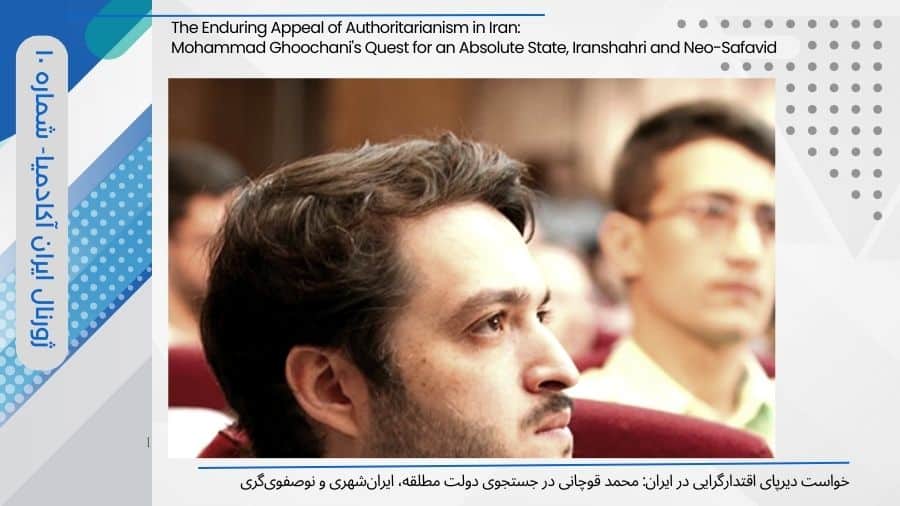Abstract
Since the Constitutional Revolution, the strong state has had a persistent presence in the social imagination of Iranians and has been a theme in Iran’s intellectual discourse. The prevailing social and political crises have heightened the prominence of the concept of establishing a strong and centralized state that can autonomously steer Iran towards development and address its challenges. This unwavering belief in the necessity of a powerful state arises from the urgent imperative for national development, modernization, and the perceived crisis of authority. This stance stands in clear contrast to approaches that prioritize a society-driven and pluralistic perspective. Following Iran’s Constitutional Revolution, centralist and authoritarian thoughts have consistently dominated the intellectual landscape, with only occasional interruptions by alternative viewpoints. These ideologies have coalesced around a centrist interpretation of nationalism, placing emphasis on the imperative of a strong centralized state. A group of intellectual figures have proposed a solution to Iran’s persistent development challenges by prioritizing an authoritarian state and technocracy over democratic principles and social pluralism. Mohammad Ghoochani has emerged as a proponent of this viewpoint, endorsing neo-Iranshahri and neo-Safavid revival, establishing an absolute state prioritizing technocracy and national unity, temporarily suspending democratic principles for this purpose. This proposed solution is grounded in concepts such as a national religion, the rejection of secularization, and a centrist interpretation of nationalism. This analysis delves into Ghoochani’s writings, examining how he consistently applies his ideology to analyze social issues. The study also explores the historical and intellectual roots of this authoritarian tendency, shedding light on the enduring attractiveness of a so-called strong state in the face of persistent challenges.


